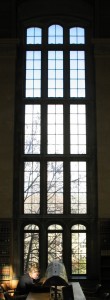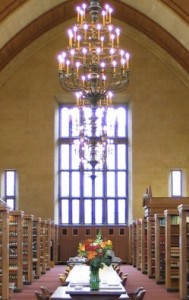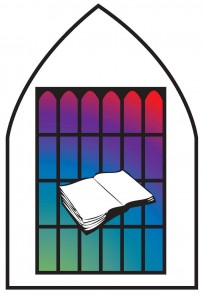The Cornell Law Library is pleased to announce the 2012 recipients of The Cornell Law Library Prize for Exemplary Student Research:
First Place: Annexation of the Jury’s Role in Res Judicata Disputes: The Silent Migration from Question of Fact to Question of Law, by Steven Madrid, 2L
Steven Madrid focused his research on two hundred years of case law to uncover an historical development not currently identified in any secondary source. Discerning the silent migration of the jury’s role in res judicata disputes from question of fact to question of law required performing the difficult research task of proving a negative – in this instance, proving the absence of cases overturning relevant precedent or otherwise affirmatively establishing res judicata disputes as a question of law. Steven’s research was further challenged by the fact that current terminology, i.e. “res judicata,” “collateral estoppel,” “claim preclusion,” and “issue preclusion,” was rarely used in nineteenth century cases. This necessarily led to the creation of innovative search queries to complete the project.
Steven’s foray into the history of his topic was unplanned at the outset of his research, and he notes that, “by maintaining an open attitude a researcher can mold his/her topic into a slight variation that may prove more interesting and novel.”
Second Place: Targeted Killing and Just War: Reconciling Kill-Capture Missions and the Combatant Civilian Framework, by Louis Guard, 3L
Louis Guard’s research encompassed a diverse array of legal, philosophical, and factual resources. Not only did he examine the theoretical underpinnings of customary international law principles, but he successfully navigated the intricate research involved in locating hard evidence of customary international law as well. To this he added an accurate accounting of the specific facts and circumstances surrounding his topic. His sources included blogs, military-specific news sources, policy briefs and position papers, speeches and public statements, treaties and their interpretive documents, and even a number of forthcoming publications.
Through discussions with both scholars and practitioners, Louis learned how depth of research affects quality of scholarship. He states, “Academic pieces lacking in rigorous research seem to do little in advancing the [academic] dialogue and are short lived. The more novel and valuable contributions always seemed to be those that were more thoroughly and competently researched.”
A review panel comprised of Librarians Jean Callihan, Pat Court, Amy Emerson, Matt Morrison and Nina Scholtz selected the winners from among 27 competitive entries.
Funding for the Prize is provided by an endowment given to the Law Library by Barbara Cantwell in honor of her late husband, Robert Cantwell, a 1956 graduate of Cornell Law School.
In addition to receiving a monetary award, the winners are also invited to publish their papers in Scholarship@Cornell Law, the Law Library’s digital repository, and to feature their papers in Reading Room displays.

 The Law Library is losing two of its long-time librarians to the lure of retirement. Associate Law Librarian Pat Court and Head of Research and References Services Jean Callihan, who between them have served the Law School for thirty-three years, are both leaving the library this summer.
The Law Library is losing two of its long-time librarians to the lure of retirement. Associate Law Librarian Pat Court and Head of Research and References Services Jean Callihan, who between them have served the Law School for thirty-three years, are both leaving the library this summer.
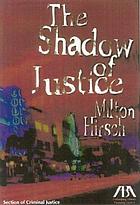
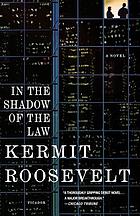
 0.
0.

